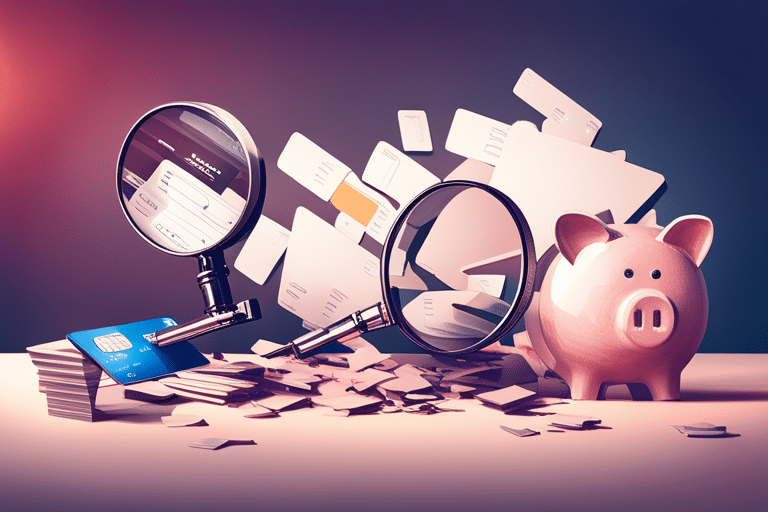Hey there, credit card guru! Think you’ve got all the answers when it comes to your plastic pals? Well, think again!
In this article, we’re here to debunk those common myths about credit card debt that have been tripping you up.
From the idea that paying the minimum balance will magically make your debt disappear to the notion that cash is king for avoiding financial woes, we’re here to set the record straight.
So buckle up and get ready to master the world of credit card debt once and for all!
Key Takeaways
- Paying the minimum balance does not eliminate credit card debt.
- Consolidating all credit card debts into one loan is not always the best solution.
- Closing unused credit cards does not improve credit scores.
- Credit card debt can happen to anyone, regardless of financial management skills.
Myth: Paying the Minimum Balance Will Eliminate Your Credit Card Debt
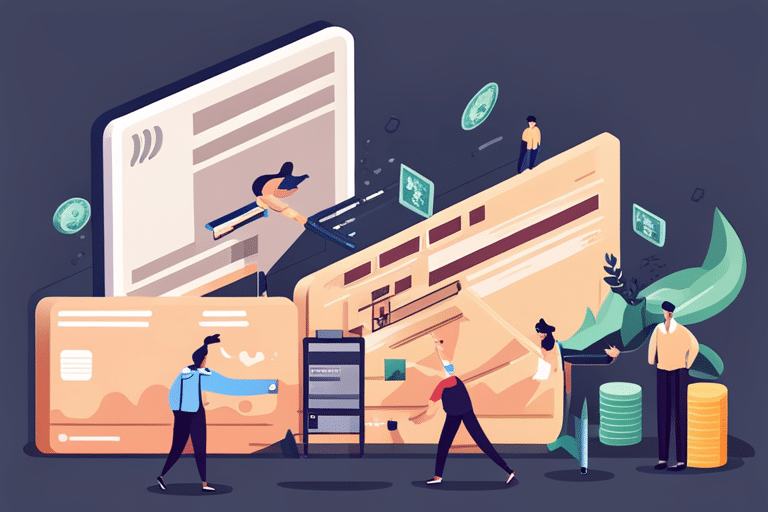
You might think that paying the minimum balance on your credit card will eliminate your debt, but that’s actually a myth.
I mean, come on! If it were that easy, we’d all be living debt-free and sipping margaritas on a beach somewhere. But alas, life isn’t always that simple.
Paying off your credit card debt requires more than just making the bare minimum payment each month. Sure, it may keep the credit card company off your back for a while, but it won’t make a dent in your overall balance.
It’s like trying to put out a forest fire with one measly bucket of water—it’s just not gonna cut it!
Myth: Consolidating All Your Credit Card Debts Into One Loan Is Always the Best Solution

Don’t automatically assume that consolidating all your credit card debts into one loan is always the best solution. Sure, it sounds like a magical cure-all for your financial woes, but let’s dive deeper into this ocean of consolidation.
First off, there are some drawbacks to consider. Consolidation can sometimes lead to higher interest rates or longer repayment terms, which means you might end up paying more in the long run. Plus, if you’re not careful, you could find yourself with even more debt than before!
But fear not, my financially savvy friend, for there are alternative solutions aplenty. You could try negotiating lower interest rates with your creditors or setting up a budget to tackle those debts one by one.
Myth: Closing Unused Credit Cards Will Improve Your Credit Score
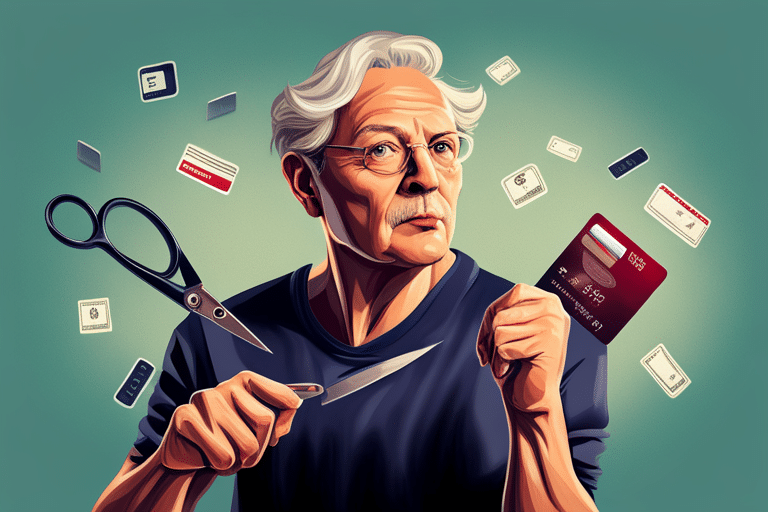
So, you think closing all those unused credit cards will give your credit score a nice little boost, huh? Well, hold on to your wallet because we’re about to dive into the wild world of credit card utilization impact, the effect of credit history, and the importance of credit mix.
Buckle up, my friend, because this is going to be one heck of a financial rollercoaster ride! We’ll uncover the truth behind these myths and explore how they can actually make or break your precious credit score.
Credit Card Utilization Impact
One common myth about credit card debt is that low credit card utilization won’t affect your credit score. Oh, how wrong they are! Your credit card utilization, which is the percentage of your available credit you’re using, has a huge impact on your credit score. So, don’t be fooled by this sneaky myth.
Here are three strategies to reduce your credit card utilization and improve your financial standing:
-
Pay off your balances: The best way to lower your utilization is to pay off those pesky balances in full each month. It’s like giving those high percentages a good old-fashioned beatdown!
-
Increase your credit limits: By requesting higher limits on your cards, you can decrease the percentage of utilization without changing your spending habits. It’s like stretching out a rubber band – more room for flexibility!
-
Use multiple cards wisely: Instead of maxing out one card, spread the love (and charges) across multiple cards with lower balances. It’s like having a buffet of options – no need to go all-in on just one dish!
Effect of Credit History
Improve your financial standing by understanding the impact of your credit history on your overall credit score.
Picture this: you’re at a fancy dinner party, and someone brings up credit card rewards. You start to wonder if those sweet travel points are worth it. Well, my friend, let me enlighten you.
Your credit history plays a critical role in determining your creditworthiness. Lenders take a peek at how long you’ve been using credit and whether you pay your bills on time. It’s like being judged by the ghosts of financial past!
Importance of Credit Mix?
So, you’ve learned about the effect of credit history, and now it’s time to dive into the importance of credit mix! Drumroll, please.
Your credit mix impact is all about diversifying your credit sources. Why settle for just one type of credit when you can have a delicious buffet of different options? Here’s why it matters:
-
Boosts your credibility: Lenders love seeing that you can handle various types of credit responsibly. It shows that you’re not a one-trick pony when it comes to managing money.
-
Improves your score: Mixing up your credit sources can contribute to a healthy credit score. It’s like adding sprinkles on top of an already good cupcake; it just makes it even better.
-
Opens more doors: With a diverse credit mix, you’ll have access to different financial opportunities like mortgages or car loans, giving you more flexibility and choices.
Diversifying your credit is like creating a symphony with different instruments – each playing its part in harmonizing your financial life. So go ahead and add some variety to your plate!
Myth: Only People With Poor Financial Management Skills Have Credit Card Debt
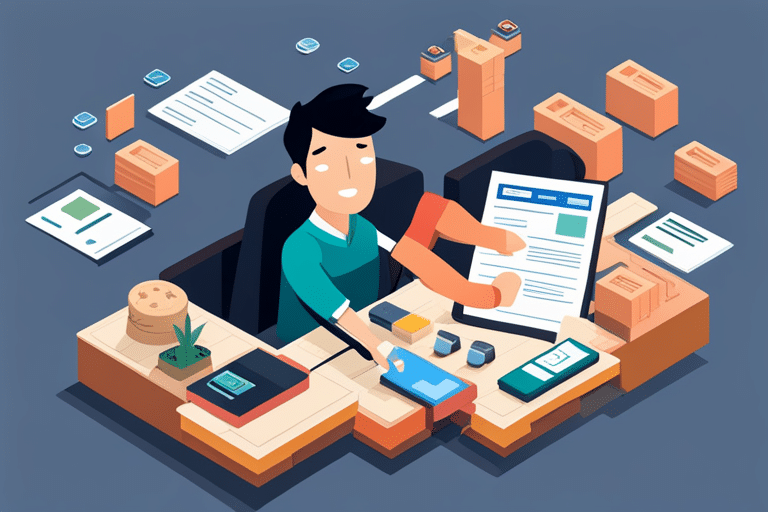
Don’t believe the myth that only people with poor financial management skills have credit card debt. Let’s face it, credit cards are like those irresistible donuts at the bakery – you just can’t resist swiping them!
But hey, even the savviest of spenders can find themselves in a sea of credit card debt. It happens to the best of us! Whether it’s unexpected medical bills or an impulsive shopping spree during sale season, life has a funny way of throwing curveballs our way.
So how do you avoid this pesky debt? Well, first things first, set a budget and stick to it like your favorite superhero sticks to their mission. And if temptation strikes, remember this: your future self will thank you for resisting that fancy designer handbag or that shiny new gadget.
Trust me, mastering the art of saying ‘no’ is your superpower when it comes to avoiding credit card debt!
Myth: It’s Better to Have No Credit Cards at All to Avoid Debt
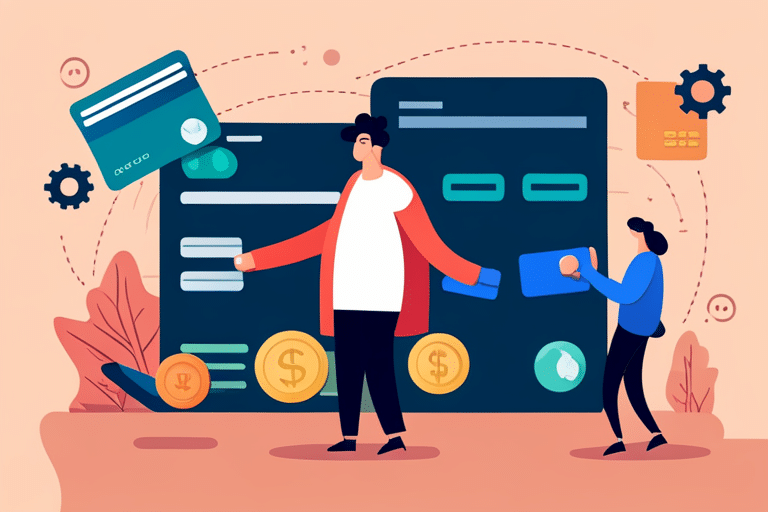
Alright, listen up folks! Today we’re diving into the mysterious world of credit cards. Don’t worry, it’s not as scary as it seems.
We’ll be unraveling the hidden benefits of credit cards, exploring how your credit usage can make or break your financial life, and uncovering the secrets to managing that pesky credit card debt.
Credit Card Benefits Explained
If you’re wondering about the benefits of credit cards, let me explain how they can work in your favor. Contrary to popular belief, credit cards aren’t just pieces of plastic that magically turn into debt monsters. They actually offer some pretty cool perks! Check out these three awesome benefits:
-
Credit Card Rewards: With every swipe, you have the chance to earn rewards like cash back, travel points, or even discounts on your favorite purchases. It’s like getting a little bonus for using your card!
-
Fraud Prevention: Credit cards come with built-in fraud protection measures that can help keep your money safe. If someone steals your card information and makes unauthorized purchases, you won’t be held responsible for those charges.
Impact of Credit Usage
Remember, using your credit card responsibly can actually have a positive impact on your financial health. Yes, you heard that right! It’s not all doom and gloom when it comes to credit cards. In fact, if you play your cards right (pun intended), you can reap some pretty sweet rewards.
Let’s talk about credit card rewards for a moment. They’re like little gifts from the credit card gods, rewarding you for spending money. From cashback to travel points, these rewards can add up over time and give you some serious perks. Who doesn’t love free stuff?
Now let’s address the elephant in the room – interest rates. We get it, they can be scary. But here’s the thing: if you pay off your balance in full every month, those interest rates won’t even matter. You’ll be laughing all the way to the bank while earning those juicy rewards.
Managing Credit Card Debt
When it comes to managing your credit card debt, it’s important to create a realistic budget and stick to it. But let’s be real, sticking to a budget can feel like trying to resist the temptation of freshly baked cookies – nearly impossible!
However, fear not my dear friend, for I have some credit card debt reduction strategies that will make you feel like a financial wizard:
-
Snowball Method: Start by paying off the smallest debts and then work your way up. It may sound counterintuitive, but the sense of accomplishment will keep you motivated.
-
Balance Transfer: If you have multiple cards with high-interest rates, consider transferring the balances onto one card with a lower interest rate. It’s like playing musical chairs with your debts!
-
Consequences of Minimum Payments: Ahh, the dreaded minimum payment trap! By only paying the minimum amount due each month, you’re basically feeding your debt monster instead of slaying it. Those interest charges can really add up over time!
Myth: Credit Card Debt Can Be Easily Discharged Through Bankruptcy

Don’t believe the myth that credit card debt can be easily discharged through bankruptcy. Oh, how we wish it were that simple! But alas, dear reader, the reality is far from a magical fix.
You see, filing for bankruptcy might make your debt disappear like a magician’s trick, but it comes with its own bag of tricks. Your credit score will take a hit – think of it as a slap on the wrist from the financial overlords. And oh boy, the consequences!
Future financial decisions become a game of Russian roulette. Want to buy a house? Good luck finding someone willing to lend you money with that bankruptcy label hanging over your head.
Myth: Paying off Your Credit Card Debt Will Automatically Improve Your Credit Score
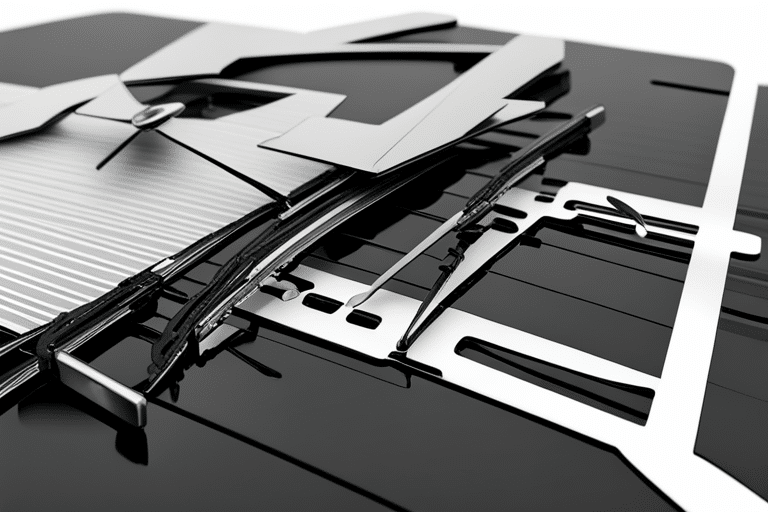
So, you’ve finally paid off all your credit card debt and you’re feeling like a financial rockstar. But hold on, don’t start planning that victory dance just yet!
Contrary to popular belief, paying off your credit card debt doesn’t automatically give you a perfect credit score. There are actually a whole bunch of factors that affect your credit score, and we’re here to shed some light on this misunderstood topic.
Credit Score Misconception
One common misconception about credit scores is that they are solely based on credit card debt. Oh, how wrong you are! While credit card debt does play a role in determining your score, it’s just one piece of the puzzle.
Let me break it down for you in a way that even your grandma could understand:
-
Payment history: This is like the report card of your financial life. Late payments or defaults can tank your score faster than you can say ‘oops’.
-
Credit utilization: It’s not just about how much debt you have, but also how much of your available credit you’re using. Keep those balances low!
-
Length of credit history: The longer you’ve been responsibly managing credit, the better.
Now that we’ve debunked this misconception, let’s dive into the factors that actually affect your credit score and make lenders swoon with delight!
Factors Affecting Credit Score
Let’s explore the factors that actually impact your credit score and make lenders swoon with delight!
Ah, the mysterious world of credit scores. It’s like trying to decipher hieroglyphics while juggling flaming torches. But fear not, dear master of credit mastery, for I shall shed light on this enigma.
Firstly, let’s talk about the factors affecting your credit limit. Your payment history holds great sway over this magical number, as does your total debt and how long you’ve had credit. But wait, there’s more! The types of accounts you have and any recent applications for new credit can also tip the scales.
Now onto the secret recipe behind calculating your credit score. It involves a dash of payment history, a sprinkle of amounts owed, a hint of length of credit history, and a dollop of new credit inquiries. Mix it all up in a cauldron and voila!
But wait! Don’t be fooled by myths surrounding those cunning credit card companies who supposedly want to trap you in debt. Let me tell you why that notion is as fictional as unicorns riding rainbows…
Myth: Credit Card Companies Are Out to Trap You in Debt

Credit card companies aren’t trying to trap you in debt; they offer various services and benefits to cater to different needs. In fact, they can be quite helpful if used wisely. Here are three reasons why credit cards can actually work in your favor:
-
Low Interest Rates: Contrary to popular belief, not all credit cards have sky-high interest rates. Many issuers offer competitive rates that allow you to pay off your balance without breaking the bank.
-
Rewards Galore: Credit card rewards programs are like a playground for savvy spenders. From cashback on purchases to airline miles and hotel stays, these incentives make swiping your card feel like winning a mini jackpot.
-
Building Credit History: Responsible credit card usage can boost your credit score, making it easier for you to get approved for loans or better interest rates in the future.
So, don’t believe the myth that credit card companies are out to get you! They’re just offering tools that, with proper understanding and self-control, can be advantageous for managing your finances.
Speaking of managing finances, let’s debunk another common myth: transferring your credit card balance to a 0% APR card is always a smart move…
Myth: Transferring Your Credit Card Balance to a 0% APR Card Is Always a Smart Move

Contrary to popular belief, transferring your credit card balance to a 0% APR card may not always be a wise decision. Sure, the idea of paying zero interest sounds enticing, like finding a unicorn in your backyard. But before you start skipping through fields of daisies, let’s take a closer look at the reality.
Take a gander at this handy-dandy table below that showcases the pros and cons of transferring debt:
| Pros | Cons |
|---|---|
| Bye-bye interest payments! | Limited time offer – watch out for sneaky expiration dates! |
| Consolidate multiple balances into one easy payment. | Balance transfer fees might sneak up on you like ninjas in the night. |
| Opportunity to pay off debt faster with no added interest. | Missed payments or new purchases can trigger sky-high interest rates. |
| Potential boost to credit score by reducing overall utilization. | Temptation to rack up more debt once old balances are paid off. |
| More money in your pocket for all those adorable cat videos you love watching. | Requires discipline and financial responsibility (insert adulting here). |
Myth: Using Cash Instead of Credit Cards Is the Best Way to Avoid Debt
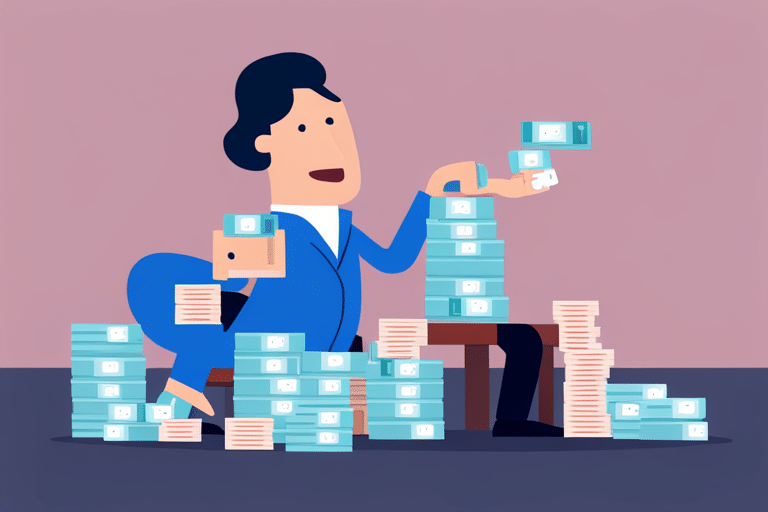
Alright, my friend, let’s debunk another credit card myth! You may have heard that using cash instead of credit cards is the best way to avoid debt. Well, hold onto your wallets because I’m about to reveal the truth!
-
Rewards Galore: Credit cards offer amazing rewards like cashback and travel points. With cash, you’re missing out on these sweet perks.
-
Safety First: Carrying around wads of cash can be risky business. If it gets lost or stolen, say goodbye to your hard-earned money. But with a credit card, you can simply report the theft and not be liable for fraudulent charges.
-
Building Credit: Using a credit card responsibly helps build a solid credit history, which is crucial for future loans like buying a car or house.
Myth: Credit Card Debt Is Always a Sign of Financial Irresponsibility
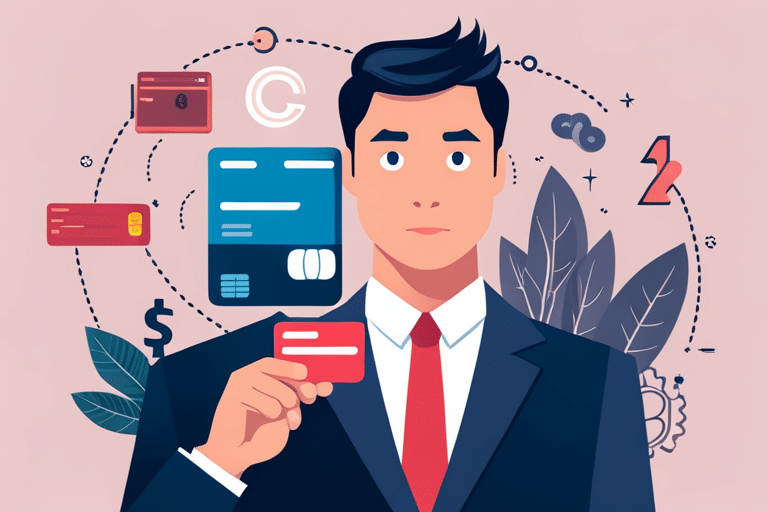
Don’t fret if you find yourself with credit card debt; it doesn’t necessarily mean you’ve been financially irresponsible. Sure, there’s a stigma attached to having credit card debt, but let me assure you that it’s not the end of the world.
In fact, carrying some debt can even be seen as a sign that you’re responsible enough to handle credit. Of course, I’m not talking about drowning in debt here; just a reasonable amount that you can manage.
Now, while credit card debt may not make you financially irresponsible, it can have an impact on your mental health. The constant worry and stress of managing payments and interest rates can really take a toll on your well-being. So remember, it’s important to stay on top of your finances and seek help if needed.
But fear not! There are ways to overcome this burden and establish a healthy relationship with credit cards.
Now let’s move on to another myth: Credit card debt is a necessary evil for establishing a good credit history…
Myth: Credit Card Debt Is a Necessary Evil for Establishing a Good Credit History
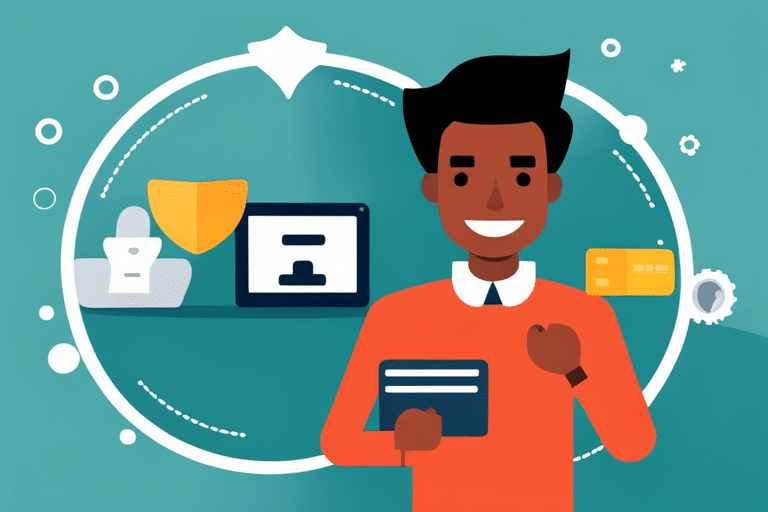
Now let’s address the misconception that having credit card debt is necessary for building a good credit history. Contrary to popular belief, you don’t need to carry a balance on your credit cards to establish a positive credit history. In fact, carrying high amounts of credit card debt can actually have a negative impact on your credit score.
So, put those myths to rest and consider these alternatives for managing your credit card debt:
-
Pay off your balances in full each month: This shows responsible use of credit and helps boost your credit score.
-
Keep your utilization low: Aim to use no more than 30% of your available credit limit.
-
Set up automatic payments: Avoid late payments by automating your monthly bill payments.
By following these tips, you can effectively manage your credit card debt while still building a strong credit history.
And speaking of managing debt, let’s move on to debunking another common myth: the idea that you can negotiate your credit card debt with the company itself.
Myth: You Can Negotiate Your Credit Card Debt With the Credit Card Company

If you find yourself struggling with credit card payments, remember that negotiating your debt directly with the credit card company is not a viable option. Sorry to burst your bubble, but they won’t be sitting on the other end of the line ready to cut you a deal.
You can’t just call them up and say, ‘Hey there, buddy! How about we knock off 50% of my debt? Deal?’ Nope, doesn’t work like that. But fear not! There are alternative solutions and negotiating strategies that can help you get out of this sticky situation.
Start by contacting a reputable credit counseling agency who can assist you in creating a budget and negotiating lower interest rates with your creditors. So put down the phone and let’s explore some real options together, shall we?
Frequently Asked Questions
Can Paying Only the Minimum Balance Eliminate Credit Card Debt?
Paying only the minimum balance won’t eliminate your credit card debt. It’s like trying to put out a forest fire with a squirt gun. You need to find alternatives to those measly payments and pay off that debt faster!
Is Consolidating All Credit Card Debts Into One Loan Always the Best Solution?
Consolidating credit card debts into one loan can be like putting all your eggs in one basket. It has pros and cons, so consider alternatives like balance transfers or snowballing payments. Explore wisely!
Will Closing Unused Credit Cards Improve Your Credit Score?
Closing unused credit cards won’t magically boost your credit score, buddy. It could actually hurt you! Your credit history length matters, and having a longer one helps build trust with lenders. So keep those old cards around, just in case!
Do Only People With Poor Financial Management Skills Have Credit Card Debt?
Believing that only people with poor financial management skills have credit card debt is a myth. Various factors, like unexpected expenses and high interest rates, can contribute. Learn strategies for managing credit card debt effectively.
Is It Better to Have No Credit Cards at All to Avoid Debt?
Having no credit cards at all doesn’t guarantee avoiding debt. In fact, using credit cards responsibly can have benefits like building a good credit score and earning rewards. It’s all about effective management, my friend!
Conclusion
Congratulations! You’ve successfully navigated through the treacherous sea of credit card debt myths. Like a fearless explorer, you’ve debunked each one with finesse.
Now, armed with knowledge and a mischievous grin, you’re ready to conquer your financial journey.
Remember, credit cards can be powerful tools if used wisely. So go forth and swipe that plastic with confidence, knowing that you are the master of your financial destiny.
Happy spending, my savvy friend!

